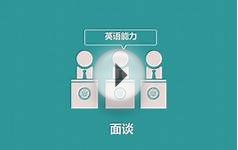
Featured Author:
Dr. Rosanna Pittella
Rosanna Pittella, MA, PhD abd, is an ethicist who based on studies of Piaget, Kohlberg, and Gilligan, developed a unique theory of integration of ethics language and concepts with standard pedagogy that has been recently published in the Journal of Higher Education, and is the focus of her presentations to regional, national, and international audiences. Ms. Pittella has built a reputation as one who delivers practical solutions, that she freely admits are unearthed and developed with the help from the unrecognized experts in American industry, those on the ground, the voiceless staffs of the corporations she serves. The application of this methodology is at the heart of the One Voice Institute of Elemental Ethics and Education, an organization or advocacy for educators dedicated to positive changes in education, which she founded with her fellow Board members. Her goal is to document and amplify the voices of the true experts in academia, the educators themselves and assist them to integrate ethics with standard American pedagogy.
More articles from this author:
As I diligently and painstakingly research and document how our American educational system was conceived, its precise path and evolution into its current state I am compelled to reconsider my core assumption. My assumption was that the Great Experiment (The United States of America) had designed a system to reflect its unparalleled commitment to democracy, liberty, and the pursuit of happiness. I pore over the original transcripts and documents resulting from the congressional and senate hearings, legislative sessions, committee meetings, and more. Reform after reform implemented, law after law passed, study after study conducted, I review and absorb them all, drawing parallels, delving further, summing up and drawing conclusions. I look for the points in the history, the elements of the chronology where the system broke down. My problem-solving instincts tell me that if I can identify those critical points where plans went awry, I can design a solution. I have been doing this very thing for large organizations for decades, so I am at home with the enormity of this task.
The sad reality is that every day, the further this project goes, the more I expand my research, the more clear it becomes that my first assumption may have been completely wrong. I thought the system was broken, had to be broken, because no one would design it to work the way it does. But I think I am heading down a path of conclusions that will prove that my thesis was completely incorrect. I am fascinated and horrified to find that each piece of legislation and each resulting reform structured the system, deliberately, to do exactly what it does.

![Lexwill 2015: Article [ Egyptian Empire in USA ]](/img/video/lexwill_2015_article_egyptian_empire_in.jpg)






